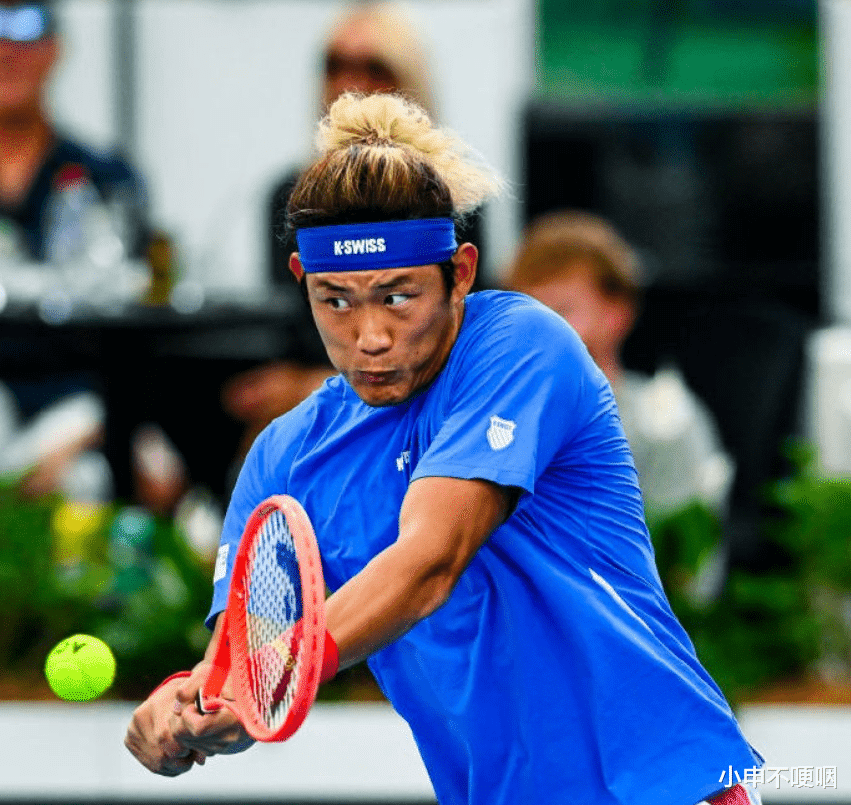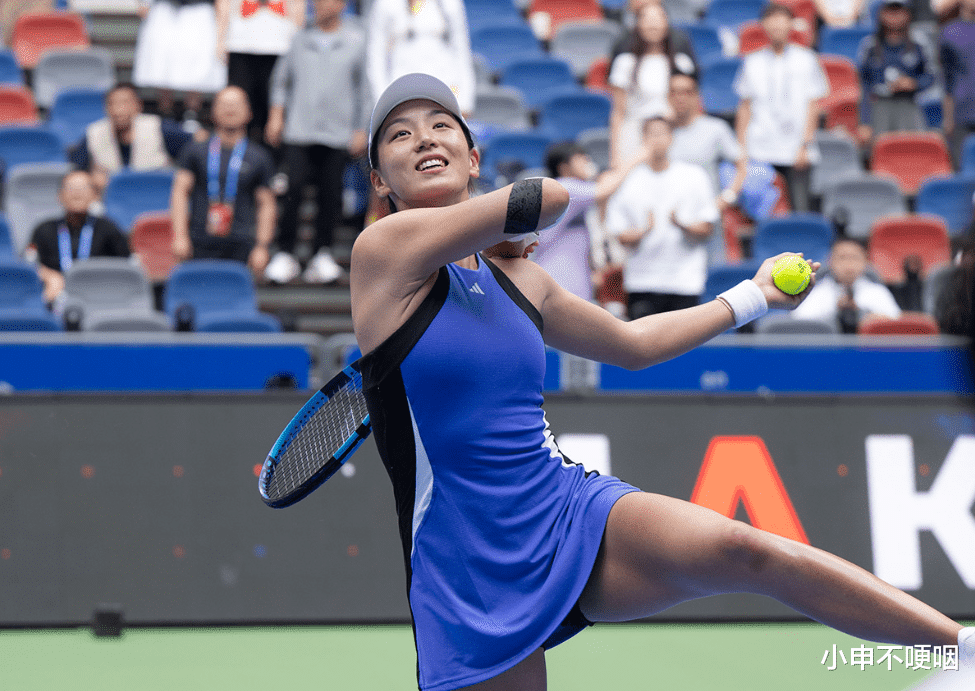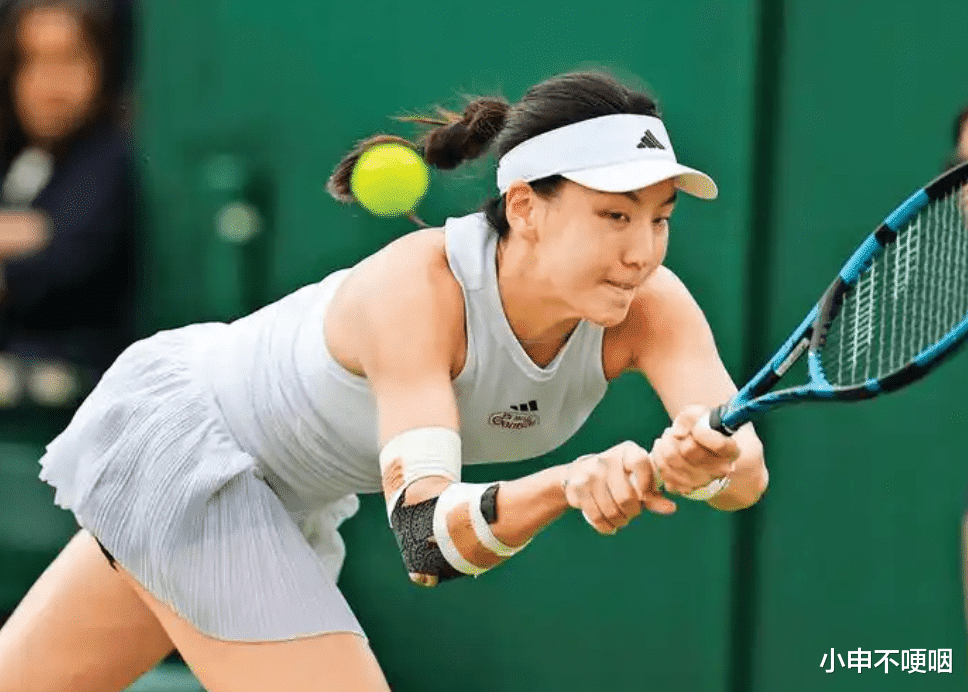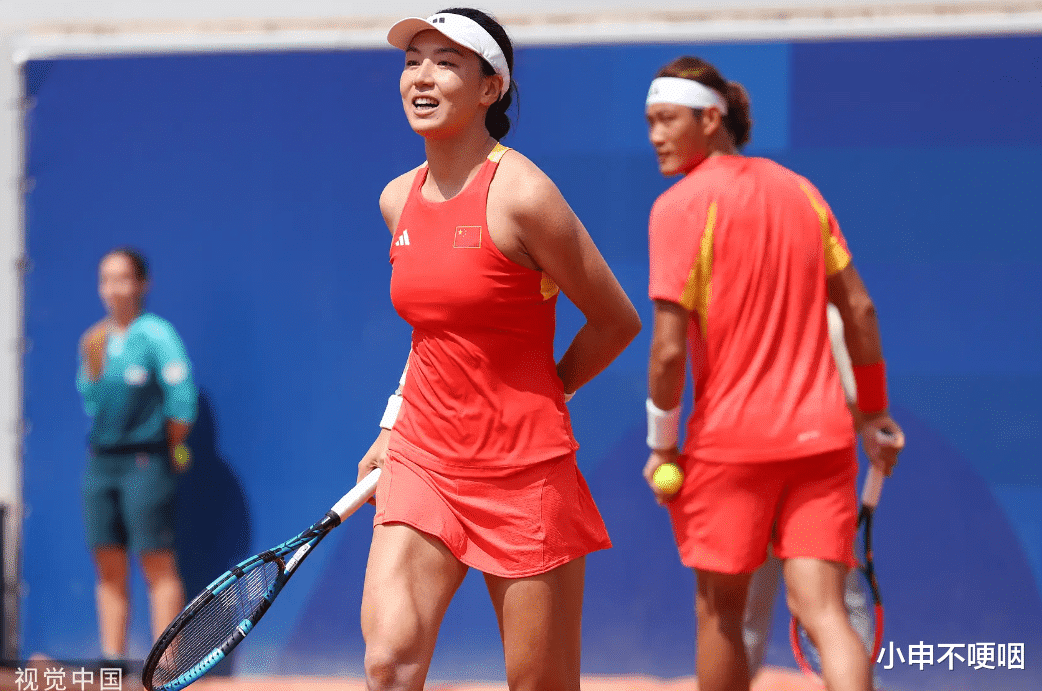When the Chinese tennis team suffered an "early exit" in their last tour before the Australian Open, everyone's heart was in their throat - were the opponents too strong, or were we not good enough? The more direct question is, does this performance mean that the upcoming Australian Open will be a complete disaster?

In fact, this situation is both disappointing and not entirely unexpected. In recent years, Chinese tennis has been stumbling since Li Na's retirement, occasionally showing flashes of brilliance but never really taking off. This collective failure may be disheartening for fans, but it may be a real wake-up call for the players themselves. So, the question is, is this due to unfavorable circumstances, or are our own weaknesses exposed?

If you know a little about Chinese women's tennis, you should be familiar with the name Yuan Yue. She was once a promising "prodigy" in her youth, with bold play and a distinctive personality, standing out on the court. However, in recent years, her performance has dimmed these "halos."

Everyone knows that Yuan Yue has the skills and potential, but in key matches, she always seems to lose focus - either her error rate soars or her mental state collapses. In this tour, she faced an opponent who wasn't particularly high-ranked, yet she couldn't even maintain a basic rhythm and quickly ended the match. This early exit reflects her current state: too few good shots and too many unforced errors.

Psychologists have said that tennis is not only a physical competition but also a "psychological battle." Yuan Yue's problem may not lie in her inability to win but in losing to her inner demons. But let's face it, who hasn't encountered such demons when they were young? What she needs to do is find a solution to this problem, rather than repeatedly giving up under pressure.

Moving on to Zhang Zhizhen on the men's side, he has been a highlight of Chinese men's tennis in recent years. On hard courts, he has powerful serves and explosive attacks, playing with vigor and excitement. However, his shortcomings are too easy for opponents to exploit - lack of endurance, weak multi-shot rallies, especially in handling crucial points, well, let's just say he tends to "drop the ball."

This loss in the tour followed a similar script. He started strong, with quality serves, making people think he could secure a stable win in the first set. However, he gradually became passive in multi-shot exchanges, and as his energy waned, his errors increased, and he lost control completely. In the end, the match ended abruptly, and he lost faster than anyone else.

To put it nicely, this is called "spectacular like fireworks"; but to be blunt, Zhang Zhizhen's technical characteristic is "able to attack and win, but destined to lose in defense." To establish himself in men's tennis, this style of play won't get him far. Solving this issue requires not just on-the-spot adjustments but accumulated physical reserves and endurance training over time. He needs not just bursts of energy but sustained, stable output over the long term.

Wang Xiyou is relatively less famous among the "four," but as a rising star in recent years, the hopes behind her are substantial. Her flexible playing style and varied technical approach make her stand out on the court. However, without solid strength to back up her flashy moves, it's difficult to sustain victory until the end.

In the tour's defeat, this young player exposed her biggest weakness: insufficient physical confrontation ability. Facing experienced and strong opponents, from serving to baseline rallies and net approaches, she was repeatedly overwhelmed and had no room to fight back. Technique can mask temporary disadvantages, but natural physical conditions are a hard injury and a test she must face in the future.
But precisely because she is young, her potential for growth is evident. Improving serve speed, enhancing physical reserves, and adapting to various court types - these seemingly simple keywords may be the key directions for her future breakthroughs.
Wang Xinyu has maintained a good level of attention since entering the professional arena - at over 1.8 meters tall, she stands out wherever she goes. She should be scoring points with power, yet she always seems to struggle for breath on the court.
Even in this tour, avoiding prolonged physical battles, she still couldn't avoid an early exit. Her serve is strong, but she often struggles to return shots; she is tall, but against agile players, she seems to be "standing there waiting to be hit." Ultimately, she still falls short in controlling the rhythm of the game. It remains to be seen if she can adjust for the upcoming Australian Open.
In fact, such collective defeats are not unprecedented in the history of Chinese tennis. The most memorable was probably the 2018 US Open. At that time, top players like Zheng Saisai and Wang Qiang were eliminated in the first round, and the entire Chinese women's team almost suffered a complete wipeout. However, just a year later at the US Open, Wang Qiang made a breakthrough, reaching the round of 16 and delivering a performance that impressed the world.
What significant changes happened during this year? Perhaps more importantly, there were adjustments from top-level strategies to personal self-improvement within the team. The shift from "everyone for themselves" to a more systematic pre-match deployment was evident, with the team's support for the players significantly enhanced. This history also reminds us that this current setback may not be a disaster but perhaps a turning point.
Although this tour has made people sigh that the future of Chinese tennis is long and arduous, don't forget that we have a group of emerging "rising stars." For example, Shang Juncheng, at just 18 years old, has repeatedly shown super psychological qualities and excelled in junior Grand Slam events; and Liang Enshuo, who has begun to emerge in many domestic and international open tournaments.
This young generation is the hope for the future of Chinese tennis. Starting with them, we can expect more possibilities. Whether it's strengthening national support, cultivating reserve forces, or improving players' tactical and technical reserves, these are all directions that require more investment in the coming period.
May this "Waterloo" become a trial on the path of growth for Chinese tennis, rather than the beginning of an endless low point. The future story still depends on them to write it down.